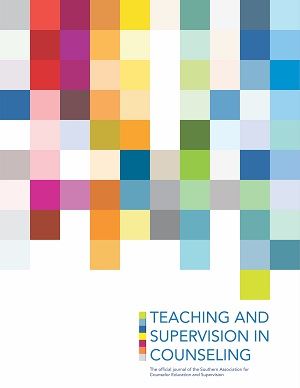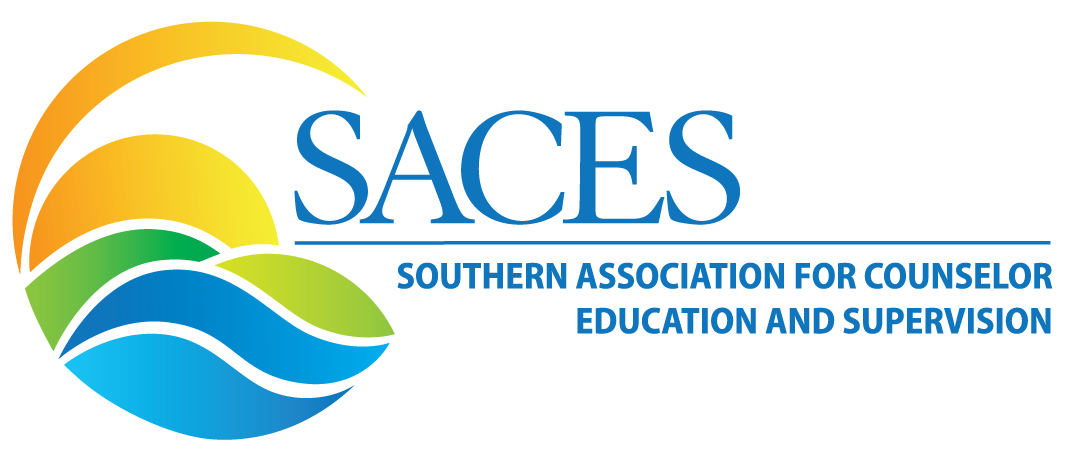Teaching and Supervision in Counseling (TSC)
 Teaching and Supervision in Counseling (TSC) is the official journal of the Southern Association for Counselor Education and Supervision (SACES), a region of the Association for Counselor Education and Supervision (ACES). The mission of SACES is to empower and support diverse counselor educators and supervisors in scholarship, advocacy, community, education, and supervision.
Teaching and Supervision in Counseling (TSC) is the official journal of the Southern Association for Counselor Education and Supervision (SACES), a region of the Association for Counselor Education and Supervision (ACES). The mission of SACES is to empower and support diverse counselor educators and supervisors in scholarship, advocacy, community, education, and supervision.Scope & Aim of the Journal
The aim of TSC is to publish high quality scholarship that informs teaching, supervision, and mentoring in educational and clinical settings. Articles may be empirical, conceptual or theoretical, or based on current issues; with an emphasis on empirical research. Articles must be scholarly, grounded in existing literature, and have implications for the counseling profession including, but not limited to, counselor education, supervisory practice, clinical training, pedagogy, mentoring, or advocacy and public policy. Additionally, a goal of TSC is to provide mentoring to graduate students in the area of peer review and writing. All manuscripts are submitted to a blind peer-review process. Manuscripts submitted to TSC fall within one of four categories, although other kinds of submissions may be considered...
Visit the journal website for more details...
Call for Manuscripts
For quantitative and conceptual submissions, manuscripts should not exceed 25 double-spaced typewritten pages, including title page, abstract/public significant statement page, references, and all tables and figures in addition to the body of the manuscript. For qualitative and mixed-method submissions, manuscripts should not exceed 30 double-spaced typewritten pages, including title page, abstract/public significant statement page, references, and all tables and figures in addition to the body of the manuscript. Current issues manuscripts should be between 10 to 15 pages in total length. The manuscripts should also be written according to the American Psychological Association (APA) Publication Manual style, 7th edition, and APA Journal Article Reporting Standards (JARS). More information about TSC’s submission guidelines and policies is available at https://trace.tennessee.edu/tsc/policies.html.
If you have any questions, please contact Dr. Bradley McKibben, TSC Editor, at tscjournal@saces.org
Teaching and Supervision in Counseling Latest Issues
We are thrilled to share the information on the latest issues in Teaching and Supervision in Counseling, the flagship journal of SACES! The journal is open-access, and each hyperlink below takes you directly to the article for your reading and downloading purposes. Check out the latest articles in the journal! Additionally, feel free to follow our social media accounts on Facebook, Twitter, and Instagram.
Facebook: https://www.facebook.com/TSCjournal
Twitter: https://twitter.com/tscjournal
Instagram: https://www.instagram.com/tscjournal/
2024 Volume 6, Issue 1 – TSC
Social Justice Identity and Program Evaluation: A Pilot Study of CMHC Students
Heidi L. Henry
Relationships of Empathy and Color-blind Attitudes on Counseling Students' Critical Consciousness
Bagmi Das, Maggie M. Parker, and Sarah Litt
Professional Identity Development of Black Doctoral Students in Counselor Education: A Reflexive Model
Olivia T. Ngadjui and Elizabeth A. Doughty Horn
Perceptions of the Instructional Research Training Environment and Research Self-Efficacy
Missy Moore, John McCall, Todd Bolin, and Austen Bingham
A Model of Retention and Remediation for Online Counselor Education
Colleen M. Grunhaus and Matthew Lyons
The Class of 2019: Academic Employment Prospects for Counselor Education Doctoral Graduates
Christopher Lawrence and Gregory Hatchett
Promoting Counselor Trainees' Clinical Skill Development Using Virtual Reality Simulations
Amber L. Pope and Chelsea Hilliard
Counselor Trainee Cognitive Complexity: Peer Interactions and Assessments
Alexandra Gantt-Howrey, Erin Woods, and Gulsah Kemer
Assessment of Professional Counseling Dispositions: A Content Validity Analysis
Patrick R. Mullen, Jacob Joseph, Kaitlin Jones Hinchey, Morgan Walker, and Jennifer Niles
2023 Volume 5, Issue 2 – TSC
Using the Five Ps: Conceptualizing COVID-19-Related Mental Health Concerns
Christine D. Gonzales-Wong and Scott Peters
Experiences of School Counseling Trainees in a Primary Care Integrated Behavioral Health Care Practicum
Kaprea Johnson, Krystal Clemons, Lauren Robins, Alexandra Gantt-Howrey, Afroze Shaikh, and Heather A. Jones
Counseling Practicum Students' Experiences Working with Children with Learning Exceptionalities
Kathryn Babb, Viki Kelchner, and Laurie O. Campbell
Exploring the Relationship Between the Supervisory Alliance and the Development of Reflexive Self-Awareness: A Mixed Methods Approach
Alexandre Brien, Réginald Savard, Cynthia Bilodeau, and Patricia Dionne
Infusing Anarchist Pedagogy into Counselor Education
Andrew Wood
Teaching Trauma Theory and Practice in Counselor Education: A Multiple Case Study
Charmayne R. Adams, Casey A. Barrio Minton, and Jennifer Hightower
Mentorship in Counselor Education: A Scoping Review
Gideon Litherland, Gretchen Schulthes, Edward Ewe, Kaj Kayij-Wint, and Kok-Mun Ng
Students’ Perceptions of Grades and Grade Inflation in Counselor Training
Daniel A. DeCino, Phillip L. Waalkes, and Steven Chesnut
Editorial Board
Journal Editor
W. Bradley McKibben, (he, him, his)
Jacksonville University
Associate Editor
Christian D. Chan (he, him, his)
The University of North Carolina at Greensboro
Editorial Assistants
Sara Ahmed (she, her, hers)
The University of North Carolina at Greensboro
Katherine Espano (she, her, hers)
Jacksonville University
